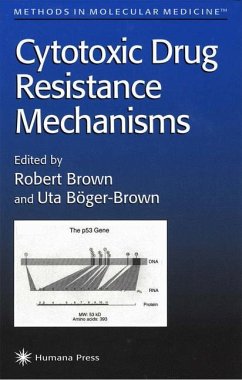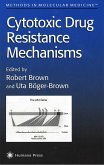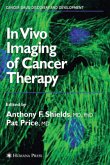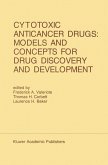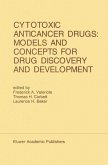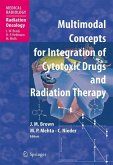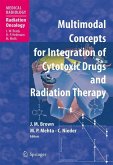There is now a range of cytotoxic drugs that have considerable clinical usefulness in producing responses in tumors and even, in a small proportion of cases, cure. However, the acquisition of drug resistance is a major clinical problem and is perhaps the main limiting factor in successful treatment of cancer. Thus, a tumor initially sensitive to chemotherapy will, in the majority of cases, eventually recur as a resistant tumor, which will then progress. Much of our understanding of drug resistance mechanisms comes from the study of tumor cell lines grown in tissue culture. We now understand many of the - lecular mechanisms that can lead to a cell acquiring resistance to antic- cer drugs; however, we still do not know which mechanism(s) are those most relevant to the problem of clinical drug resistance. Indeed, given that many of the cytotoxic anticancer drugs were discovered by random screening, it is - clear what features give a clinically useful anticancer drug a sufficient the- peutic index to be of value. The aim of Cytotoxic Drug Resistance Mechanisms is to provide pro- cols that are appropriate for examining the mechanisms of cellular resistance to anticancer cytotoxics in human tumor samples. Tumor cell lines have been enormously useful as experimental models of drug resistance mechanisms, however they have limitations and we need to address the relevance of such mechanisms in patients' tumors. Examining drug resistance in tumors is much more problematic than in cell lines.
Hinweis: Dieser Artikel kann nur an eine deutsche Lieferadresse ausgeliefert werden.
Hinweis: Dieser Artikel kann nur an eine deutsche Lieferadresse ausgeliefert werden.
"This timely book will greatly benefit a wide array of individuals interested in cancer therapeutics, at both the clinical and basic science level. The editors and contributors did a good job of concisely presenting otherwise disparate methodologies in the context of a broad research field with the uniting purpose of understanding the biology underlying resistance to cancer chemotherapy. "-Doody's Health Sciences Book Review Journal "...the editors have managed to successfully compile a brief review of cytotoxic drug resistance mechanisms and an extensive manual of protocols for laboratory experimentation in this extremely important area of research. It is clear that any laboratory scientist in this field must be aware of the difficulty of translation to the clinic of anti-drug resistance lead compounds, and should keep a copy of this book within reach. Congratulations to the editors for assembling an important mix of laboratory and clinical scientists to create this volume."-The Quarterly Review of Biology "This book provides a comprehensive guide to a range of methods to a diverse range of drug resistance mechanisms including: Multidrug resistance (P-glycoprotein and MDR-1 gene analysis); cell sensitivity (clonogenic and MTT assays); Apoptosis (TUNEL, p 53 and Bcl-2); Glutathione-associated resistance (enzyme based glutathione assay and a HPLC method for reduced glutathione); DNA repair defects and damage (topoisomerase activity assays and DNA adduct measurements); 5-Fluorouracil metabolizing enzymes; Genetic analysis including microsatellite instability and fluorescence in situ hybridization....The methods are clearly described with each chapter consisting of an introduction and well described materials and methods sections. An extremely useful addition to most chapters was the "Notes" section where the respective authors suggest very useful hints, problem solving approaches and advice on the interpretation of results....the book is well written and useful addition to any laboratory investigating drug resistance in either clinical samples or tumor cell lines."-Cancer Forum "...a useful collection of protocols that can be used in the oncology laboratory for studies on drug resistance and molecular pharmacology....It should find its place on the library shelves of many laboratories of oncology."- Annals of Oncology

